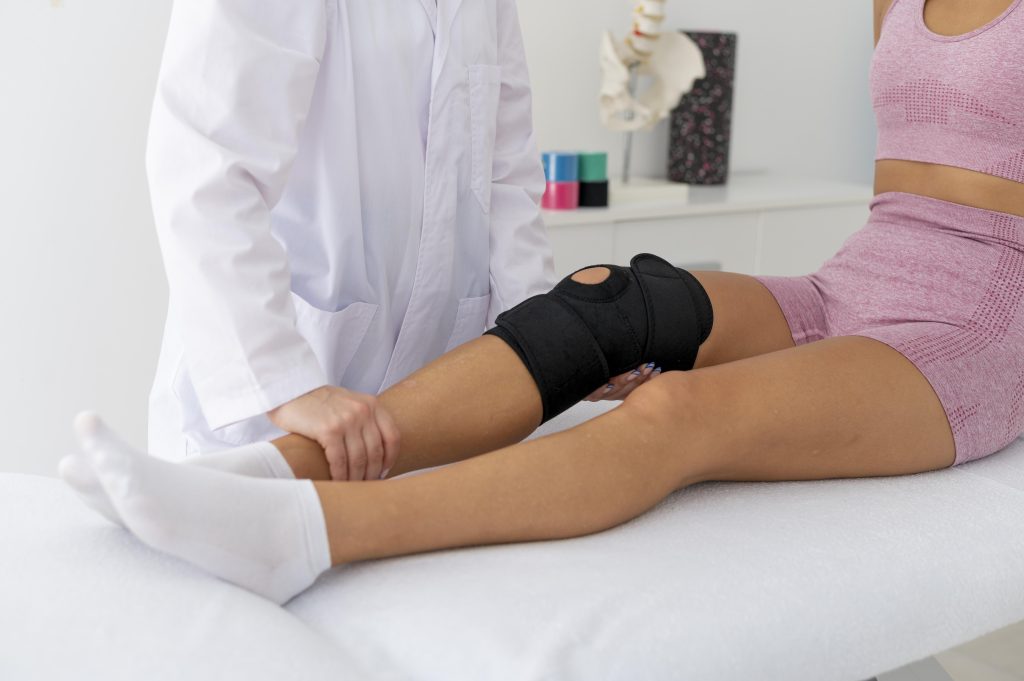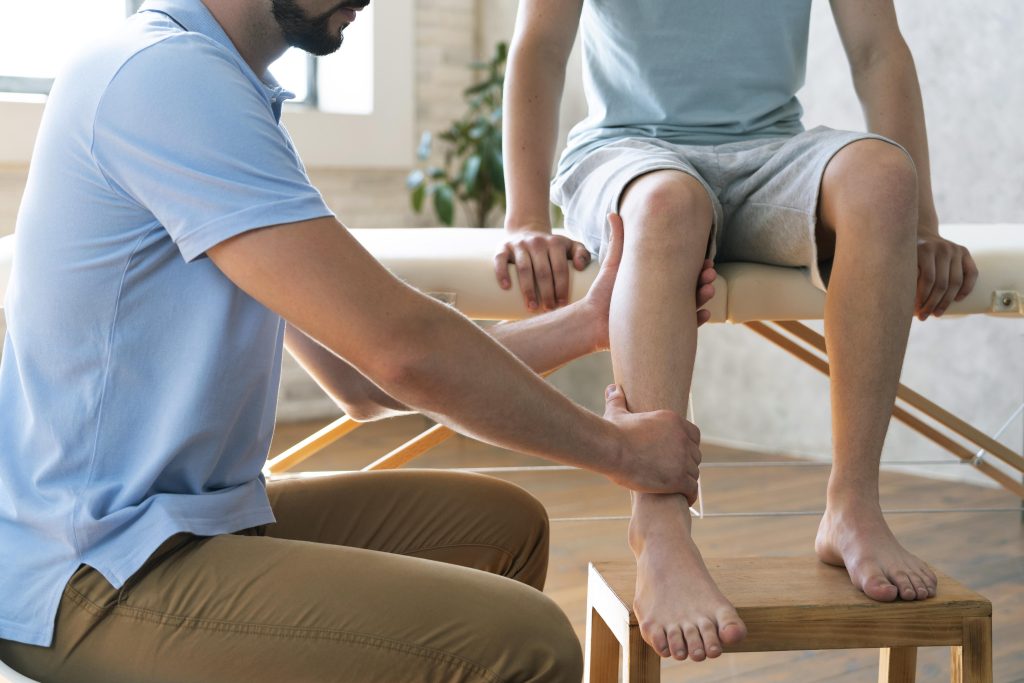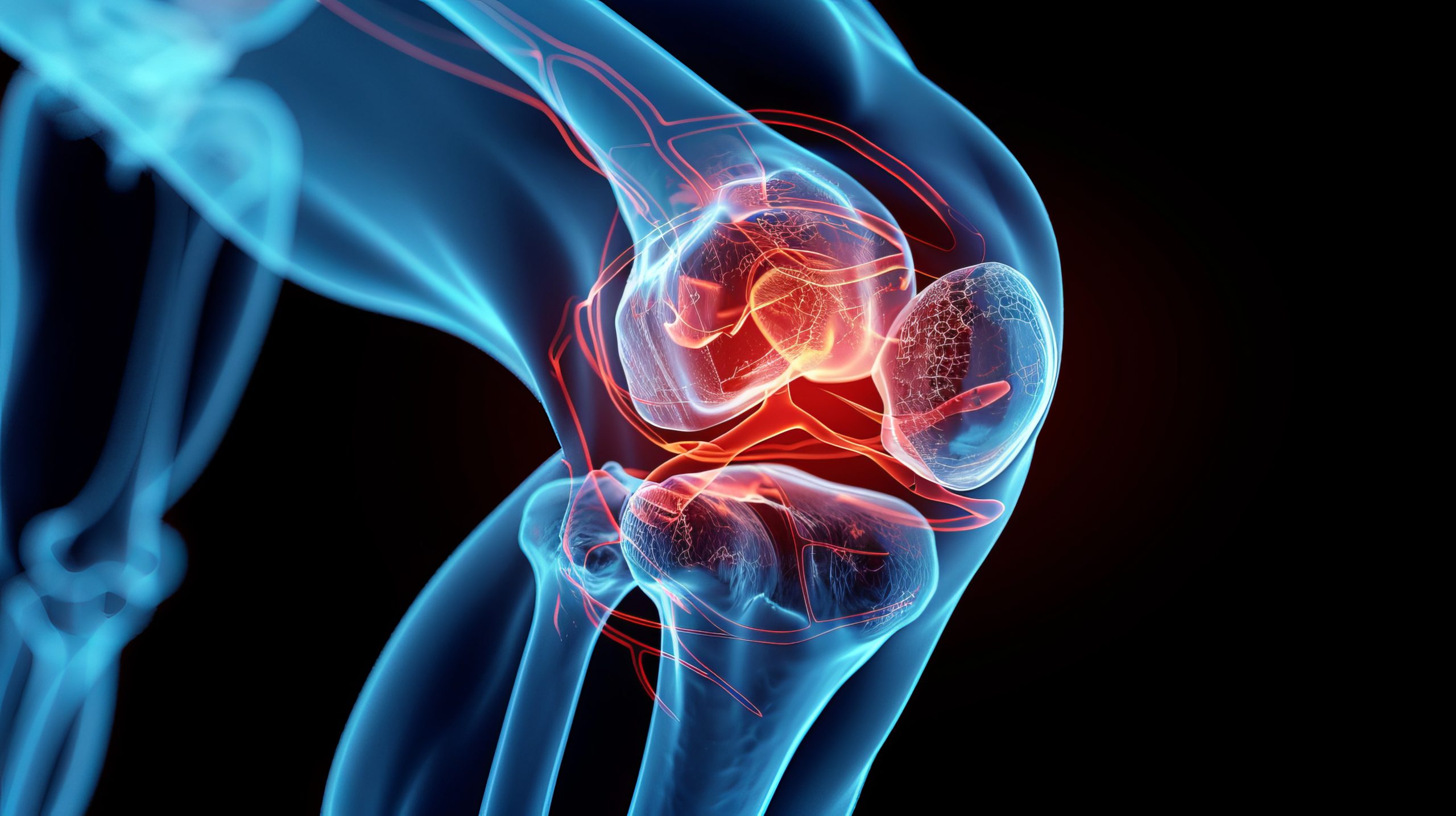Orthopaedic
optimus Superspeciality Hospital aims to provide world-class treatment for various orthopaedic disorders and sports injuries. We have a team of highly skilled and dedicated orthopaedic surgeons with robust experience and further specialized in computer-navigated Total Knee, Hip, Orthopaedic and Joint Replacement Surgery in India. At Optimus Super Specialty Hospital, we take pride in offering the latest facility dedicated to providing the highest quality orthopaedic services. Our orthopaedic department is equipped with cutting-edge technology and modern infrastructure to ensure a comprehensive and seamless healthcare experience for our patients.
“Optimus Super Speciality Hospital Building a Bridges to a Pain-Free Tomorrow”
Orthopedics is a specialized field of medicine focused on the diagnosis, treatment, and management of musculoskeletal disorders, injuries, and conditions affecting the bones, joints, muscles, ligaments, tendons, and nerves. Orthopaedic specialists, known as the Best orthopaedic surgeons in India or orthopedists, play a crucial role in restoring mobility, function, and quality of life for patients of all ages. Understanding the scope of orthopaedic care, treatment options, and preventive strategies is essential for promoting musculoskeletal health and well-being.
Advanced Diagnostic and Imaging Technology at Best Orthopaedic Hospitals in India
Our commitment to excellence begins with accurate diagnosis. Our Hospital is equipped with advanced diagnostic tools, including MRI, CT scans, and X-rays, allowing our best orthopaedic Surgeon in India specialists to precisely assess and diagnose a wide range of musculoskeletal conditions. This technology enables us to tailor treatment plans to individual needs, ensuring optimal outcomes.
Orthopaedic Subspecialties at Best Orthopaedic Hospitals in India
1. Sports Medicine
Orthopaedic sports medicine focuses on the prevention, diagnosis, and treatment of sports-related injuries and conditions. This includes ligament tears (e.g., ACL tears), meniscus injuries, tendonitis, fractures, dislocations, and overuse injuries commonly seen in athletes and active individuals.
2. Joint Replacement Surgery
Orthopaedic surgeons perform joint replacement surgeries, such as total knee replacement, total hip replacement, and shoulder replacement, to alleviate pain, improve joint function, and restore mobility in patients with severe arthritis, degenerative joint disease, or joint injuries.
3. Spine Surgery
Orthopaedic spine surgeons specialize in the evaluation and treatment of spinal disorders, including herniated discs, spinal stenosis, degenerative disc disease, scoliosis, spinal fractures, and spinal cord injuries. They may perform spinal fusion surgeries, decompression procedures, and minimally invasive spine surgeries.
4. Pediatric Orthopedics
Pediatric orthopaedic specialists focus on the unique musculoskeletal needs of children and adolescents. They treat conditions such as congenital deformities, developmental hip dysplasia, scoliosis, limb deformities, fractures, and sports injuries in pediatric patients, ensuring optimal growth and function.
5. Hand and Upper Extremity Surgery
Orthopaedic hand surgeons and upper extremity specialists diagnose and treat conditions affecting the hand, wrist, forearm, elbow, and shoulder. This includes fractures, carpal tunnel syndrome, trigger finger, tendon injuries, arthritis, and nerve compression syndromes.
Common Orthopedic Conditions and Treatments
1. Osteoarthritis
Osteoarthritis is a degenerative joint disease characterized by cartilage wear and joint inflammation. Orthopedic treatments for osteoarthritis may include medications, physical therapy, joint injections, orthotics, and in severe cases, joint replacement surgery.
2. Fractures and Trauma
Orthopaedic surgeons treat fractures, dislocations, and traumatic injuries to the musculoskeletal system using techniques such as closed reduction, casting, splinting, fixation with screws or plates, and surgical repair for complex fractures.
3. Sports Injuries
Orthopaedic sports medicine specialists manage sports injuries such as ligament tears (e.g., ACL tears), meniscus tears, rotator cuff injuries, tennis elbow, and stress fractures. Treatment may involve rest, physical therapy, bracing, arthroscopic surgery, and rehabilitation.
4. Tendon and Ligament Injuries
The best Orthopaedic surgeon in India addresses tendon and ligament injuries, including rotator cuff tears, Achilles tendon ruptures, ligament sprains (e.g., MCL or LCL sprains), and tendonitis, using conservative measures or surgical repair depending on the severity and location of the injury.
Preventive Orthopedic Care at Best Orthopaedic Hospital in India
Orthopaedic specialists emphasize preventive care strategies to maintain musculoskeletal health and reduce the risk of injuries. This includes:
- Regular Exercise: Engaging in regular physical activity to strengthen muscles, improve flexibility, and maintain joint mobility.
- Proper Body Mechanics: Practicing proper body mechanics, lifting techniques, and ergonomic principles to prevent strain and injuries during daily activities and work tasks.
- Healthy Lifestyle: Adopting a healthy diet, maintaining a healthy weight, avoiding smoking, and managing chronic conditions such as diabetes and osteoporosis to support musculoskeletal health.
- Injury Prevention Programs: Participating in injury prevention programs, sports conditioning, and warm-up exercises to reduce the risk of sports-related injuries and overuse syndromes.
Orthopedic Care at Optimus Superspeciality Hospital
At Optimus Superspeciality Hospital, we offer comprehensive orthopaedic care delivered by experienced orthopaedic surgeons and specialists. Our commitment to excellence, advanced treatments, and patient-centred approach ensures optimal outcomes for individuals with musculoskeletal conditions and injuries. Discover the range of orthopaedic services we provide to help you regain mobility, reduce pain, and improve your quality of life.
Why Should You Choose Us?
- Expert Orthopedic Team: Our Best orthopaedic surgeon in Gwalior and specialists are highly skilled professionals with extensive experience in diagnosing and treating a wide range of orthopaedic conditions, from sports injuries to degenerative joint diseases.
- Latest Facilities: We are equipped with advanced diagnostic technology, imaging services, surgical suites, and rehabilitation facilities to provide comprehensive orthopaedic care under one roof.
- Individualized Treatment Plans: We understand that each patient is unique, which is why we develop personalized treatment plans tailored to your specific condition, goals, and lifestyle, ensuring optimal outcomes and patient satisfaction.
- Collaborative Approach: Our multidisciplinary team works collaboratively to coordinate your care, from initial evaluation and diagnosis to surgical interventions, rehabilitation, and follow-up care, ensuring continuity and comprehensive support throughout your orthopaedic journey.
Services We Offer
- Joint Replacement Surgery: Total knee replacement, total hip replacement, shoulder replacement, and other joint replacement procedures to relieve pain, restore function, and improve joint mobility in patients with severe arthritis and joint degeneration.
- Sports Medicine: Diagnosis and treatment of sports-related injuries, including ligament tears, meniscus injuries, tendonitis, fractures, and overuse syndromes, with a focus on non-surgical interventions, minimally invasive procedures, and sports-specific rehabilitation.
- Spine Care: Evaluation and management of spinal disorders, herniated discs, spinal stenosis, degenerative disc disease, scoliosis, spinal fractures, and spinal cord injuries, with surgical and non-surgical treatment options to address spine-related conditions.
- Orthopaedic Trauma: Treatment of fractures, dislocations, traumatic injuries, and complex orthopaedic trauma cases using advanced surgical techniques, fracture fixation, and trauma care protocols to promote healing and recovery.
- Pediatric Orthopedics: Specialized care for children and adolescents with musculoskeletal conditions, congenital deformities, growth-related disorders, sports injuries, and developmental hip dysplasia, focusing on early intervention and family-centered care.
Patient-Centric Care
At Optimus Super Speciality Hospital , we prioritize patient-centric care, focusing on compassionate communication, patient education, shared decision-making, and personalized attention throughout your orthopaedic treatment journey. Our goal is to empower you with knowledge, support your recovery, and help you achieve your musculoskeletal health goals.
Schedule Your Appointment Today
If you’re experiencing musculoskeletal pain, joint issues, sports injuries, or other orthopaedic concerns, we encourage you to schedule an appointment with our orthopaedic team at Optimus Super Speciality Hospital. Let us help you regain mobility, improve function, and enhance your quality of life through comprehensive orthopaedic care and expertise.
Online Consultations with the Best Orthopaedic Surgeons in India
Optimus Super Speciality Hospital understands the importance of accessibility. Through telemedicine, our orthopaedic specialists provide remote consultations, ensuring that patients have convenient access to expert advice and guidance without the need for unnecessary travel.
Professional Development of our Hospital
Our orthopaedic team is committed to continuous learning and professional development. By staying abreast of the latest medical research and advancements, our specialists guarantee that patients receive the most up-to-date and evidence-based care.
Optimus Super Speciality Hospital is the best orthopaedic hospital in India for Orthopedic and Joint Replacement Services. It is a beacon of excellence, combining top-notch facilities, cutting-edge technology, and a team of dedicated experts. Our commitment to providing comprehensive and patient-centred care makes us the go-to destination for individuals seeking Orthopaedic services.
Contact us today to learn more about our services, meet our dedicated orthopaedic specialists, and take the first step towards a healthier, active lifestyle. For appointments or inquiries, please contact us. We look forward to serving you and your family.
Total Knee Replacement Surgery
Total knee replacement surgery in Gwalior, also known as total knee arthroplasty, is a surgical procedure performed to replace a damaged or worn-out knee joint with an artificial implant. This procedure is commonly recommended for individuals with severe knee arthritis, chronic knee pain, limited mobility, and difficulty performing daily activities. Understanding the process, benefits, risks, and recovery associated with total knee replacement surgery is crucial for patients considering this treatment option.
A knee replacement (also called knee arthroplasty) might be more accurately termed a knee “resurfacing” because only the surface of the bones is replaced.
There are four basic steps to a knee replacement procedure:
- Prepare the bone: The damaged cartilage surfaces at the ends of the femur and tibia are removed along with a small amount of underlying bone.
- Position the metal implants: The removed cartilage and bone are replaced with metal components that recreate the surface of the joint. These metal parts may be cemented or “press-fit” into the bone.
- Resurface the patella: The undersurface of the patella (kneecap) is cut and resurfaced with a plastic button. Some surgeons do not resurface the patella, depending on the case.
- Insert a spacer: A medical-grade plastic spacer is inserted between the metal components to create a smooth gliding surface.
(Left) Severe osteoarthritis & (Right) The arthritic cartilage and underlying bone have been removed and resurfaced with metal implants on the femur and tibia. A plastic spacer has been placed in between the implants.
“Your immediate assistance, Optimus Super Speciality Hospital aim – new life to injured Joints. “

Total Knee Replacement Surgery in Gwalior
The Best Knee Replacement Surgeon Doctors in Gwalior is a surgical procedure that is typically performed in cases of severe knee joint damage or debilitating conditions. Here are some common reasons why a Total Knee Replacement might be considered:
Osteoarthritis: This is the most common reason for knee replacement surgery. Osteoarthritis occurs when the cartilage that cushions the ends of bones in the knee joint deteriorates over time, leading to pain, stiffness, and decreased mobility.
Rheumatoid Arthritis: This autoimmune disease can affect the joints, including the knees. It causes inflammation that can erode the cartilage and bone in the joint, leading to significant pain and disability.
Post-Traumatic Arthritis: Severe fractures or injuries to the knee joint can result in long-term damage, leading to arthritis and the need for knee replacement surgery.
Other Forms of Arthritis: Conditions such as psoriatic arthritis, ankylosing spondylitis, and juvenile arthritis can also cause significant joint damage, necessitating knee replacement.
Failed Previous Treatments: When conservative treatments such as medications, physical therapy, and joint injections no longer provide relief, and the pain and disability continue to interfere with daily activities, a total knee replacement may be considered.
Bone Tumors: Rarely, tumors in the knee joint may require surgical removal and replacement with an artificial joint.
Congenital Disorders: Some individuals may have congenital conditions or deformities in the knee joint that lead to significant pain and dysfunction, requiring surgical intervention.
Severe Knee Deformity: Advanced deformities due to chronic diseases or injuries may necessitate total knee replacement to restore function and alleviate pain.
It’s important to note that the decision to undergo total knee replacement Surgery is typically made after a thorough assessment by a medical professional. The procedure is considered when conservative measures are no longer effective, and the knee joint’s condition significantly impacts the individual’s quality of life. As with any surgical procedure, there are risks and benefits, and the decision should be made in consultation with a healthcare provider based on the specific circumstances of each patient.
Health Tips & Info
In emergency cases requiring Total Knee Replacement surgery at the best hospitals, a well-coordinated and rapid response is crucial. The integration of advanced technology, specialized surgical expertise, and comprehensive postoperative care ensures that patients receive optimal treatment even in challenging and urgent situations.
At the Optimus Super Speciality Hospital, we have the best Surgeons for Joint replacement in Gwalior who have experienced several critical and challenging cases for Joint Replacement, Metal Implantation and Knee Replacement Surgery. We are well equipped with the most advanced technology for these types of Surgery. Apart from that, we have designed our rooms according to the requirements of the patients. For doctor consultation, book an appointment online consultation or plan your visit with the best Surgeon.
Shoulder Arthroscopy

Shoulder arthroscopy is a minimally invasive surgical technique employing an arthroscope, a miniature camera, for the examination and intervention in the tissues surrounding the shoulder joint. The arthroscope is introduced through a small incision in the skin.
The rotator cuff, comprising muscular and tendinous structures, envelops and stabilizes the shoulder joint, enabling diverse movements. Overutilization or trauma can result in tears in the tendons of the rotator cuff.
Administration of general or regional anesthesia renders the patient unconscious or pain-free during the procedure. The surgeon, throughout the operation:
Inserts the arthroscope through a small incision, connecting it to a video monitor in the operating room.
Examines all shoulder joint tissues, encompassing cartilage, bones, tendons, and ligaments.
Addresses damaged tissues through additional small incisions, utilizing various instruments for repair or removal of torn muscles, tendons, or cartilage.
Specific procedures conducted during the operation may include:
Rotator cuff repair:
Apposition of tendon edges and attachment to the bone using sutures.
Deployment of small rivets (suture anchors) to facilitate secure tendon-to-bone attachment, composed of metal, plastic, or suture material.
Surgery for impingement syndrome:
Debridement of damaged or inflamed tissue above the shoulder joint.
Potential cutting of the coracoacromial ligament.
Shaving of the underside of the acromion bone to address inflammation and pain caused by a bony spur.
Surgery for shoulder instability:
Repair of torn labrum, the cartilage lining the shoulder joint rim.
Reconstruction of ligaments attaching to the labral region.
Addressing Bankart lesions involving tears in the lower part of the shoulder joint’s labrum, potentially affecting the glenoid bone.
Closure of incisions involves stitching and dressing application. Surgeons may opt for open surgery in cases of extensive damage, necessitating a larger incision to directly access bones and tissues.
Partial Knee Replacement Surgery
Unicompartmental Knee Replacement (UKR), also known as partial knee replacement, involves the resurfacing of a specific segment of the knee, serving as an alternative to total knee replacement for patients with localized knee disease. Due to the utilization of a smaller incision in the UKR procedure, patients typically experience minimal or no hospitalization and a faster return to normal activities compared to total knee replacement recipients.
For cases of advanced osteoarthritis confined to a single knee compartment, unicompartmental knee replacement is a viable treatment option. In this surgical intervention, the damaged compartment is replaced with metal and plastic components, preserving the healthy cartilage, bone, and ligaments.
Orthopaedic Evaluation:
Thorough assessment by an orthopaedic surgeon is imperative to determine the suitability of a patient for a partial knee replacement.
Medical History:
Your physician will inquire about your overall health, knee pain, and functional capabilities before performing your knee replacement surgery.
Location of Pain:
Emphasis will be placed on the specific location of pain. Candidates for partial knee replacement often exhibit pain predominantly on either the inner or outer part of the knee. Total knee replacement may be recommended for those experiencing pain throughout the entire knee or in the front (under the kneecap).
Physical Examination:
A meticulous examination of the knee will be conducted to assess range of motion and ligament integrity. Stiffness or weakness in the knee may disqualify a patient from unicompartmental knee replacement, with total knee replacement remaining a potential option.
Imaging Tests:
X-rays: Multiple knee X-rays are ordered to determine the extent of damage and deformity, providing insight into the arthritis pattern.
Magnetic Resonance Imaging (MRI) Scans: In certain cases, an MRI scan may be recommended to enhance cartilage evaluation.
Before Partial Knee Replacement Surgery
Prior to the procedure, a consultation with an anesthesiologist will be conducted to discuss anesthesia options. This discussion should have been initiated during preoperative hospital visits with the surgeon. Anesthesia alternatives encompass:
General anesthesia inducing unconsciousness.
Spinal anesthesia rendering the lower body numb while the patient remains awake.
Peripheral nerve block a form of regional anesthesia involving the injection of numbing agents near specific nerves to obstruct pain signals from targeted areas. These blocks may be employed in conjunction with general or spinal anesthesia.
Preoperative Preparation:
The surgeon will conduct a pre-surgery assessment, signing the knee with a marker to confirm the correct surgical site.
Surgical Procedure:
A typical partial knee replacement procedure spans 1 to 2 hours.
Joint inspection: An incision is made at the front of the knee, allowing the surgeon to explore the three knee compartments, ensuring limited cartilage damage and intact ligaments.
Assessment for Total Knee Replacement: If the surgeon deems a partial knee replacement unsuitable, a contingency plan for a total knee replacement may be implemented, with prior discussion to secure patient agreement.

Why should you choose Optimus Super Specialty Hospital?
Optimus Super Speciality Hospital distinguishes itself through an unwavering dedication to providing superior personalized care and customer service across its extensive network of hospitals, clinics, and specialized care facilities throughout India. Our specialized and expertly trained team of Surgeons is committed to consistently achieving exceptional outcomes. Our focus extends beyond mere patient treatment, emphasizing holistic care for individuals.
Note:
It is crucial to acknowledge that the medical interventions outlined on this Page can be tailored to align with individual requirements. It is imperative to adhere to the guidance provided by your healthcare professional and address any inquiries or concerns directly with the Best Surgeons of India.

